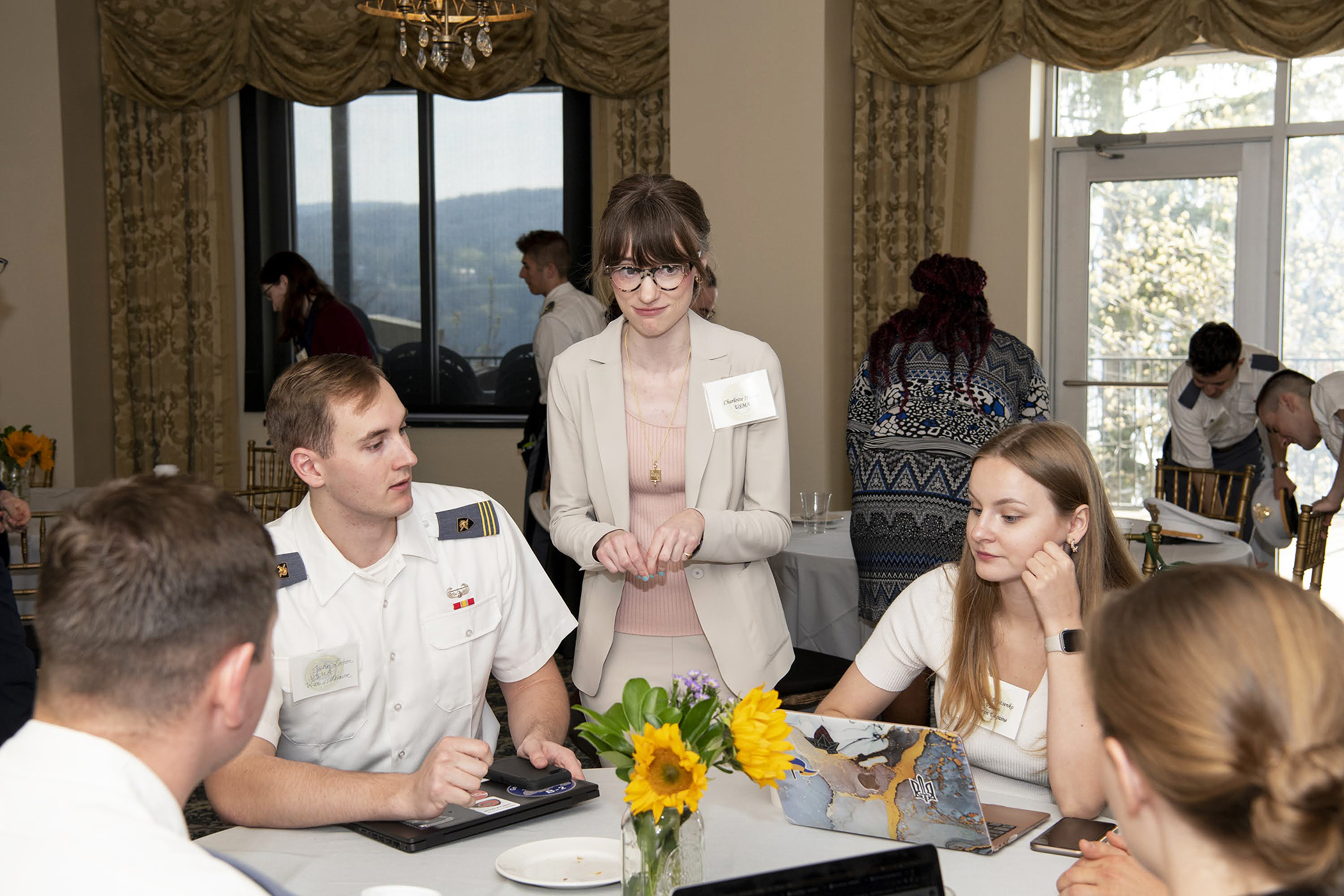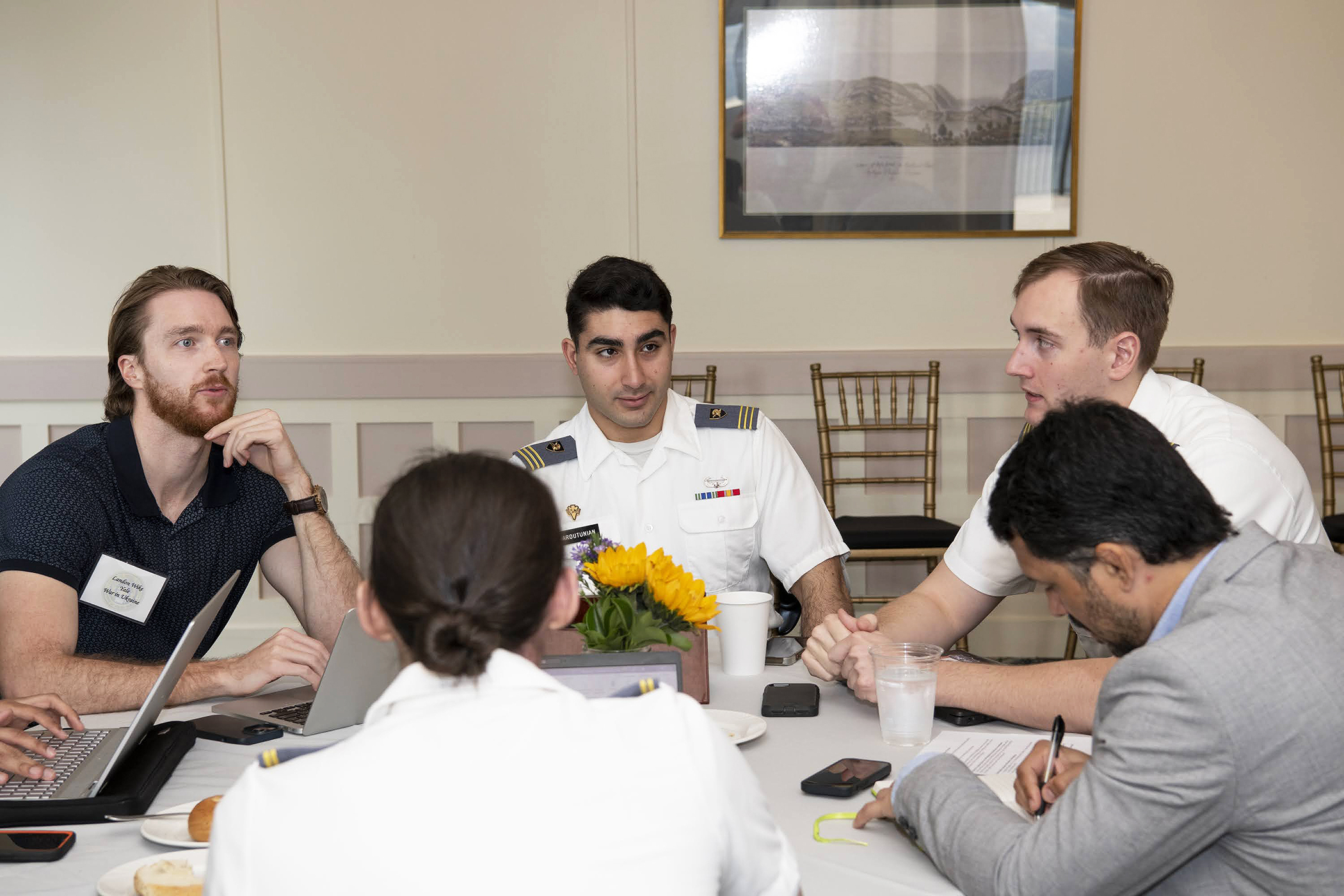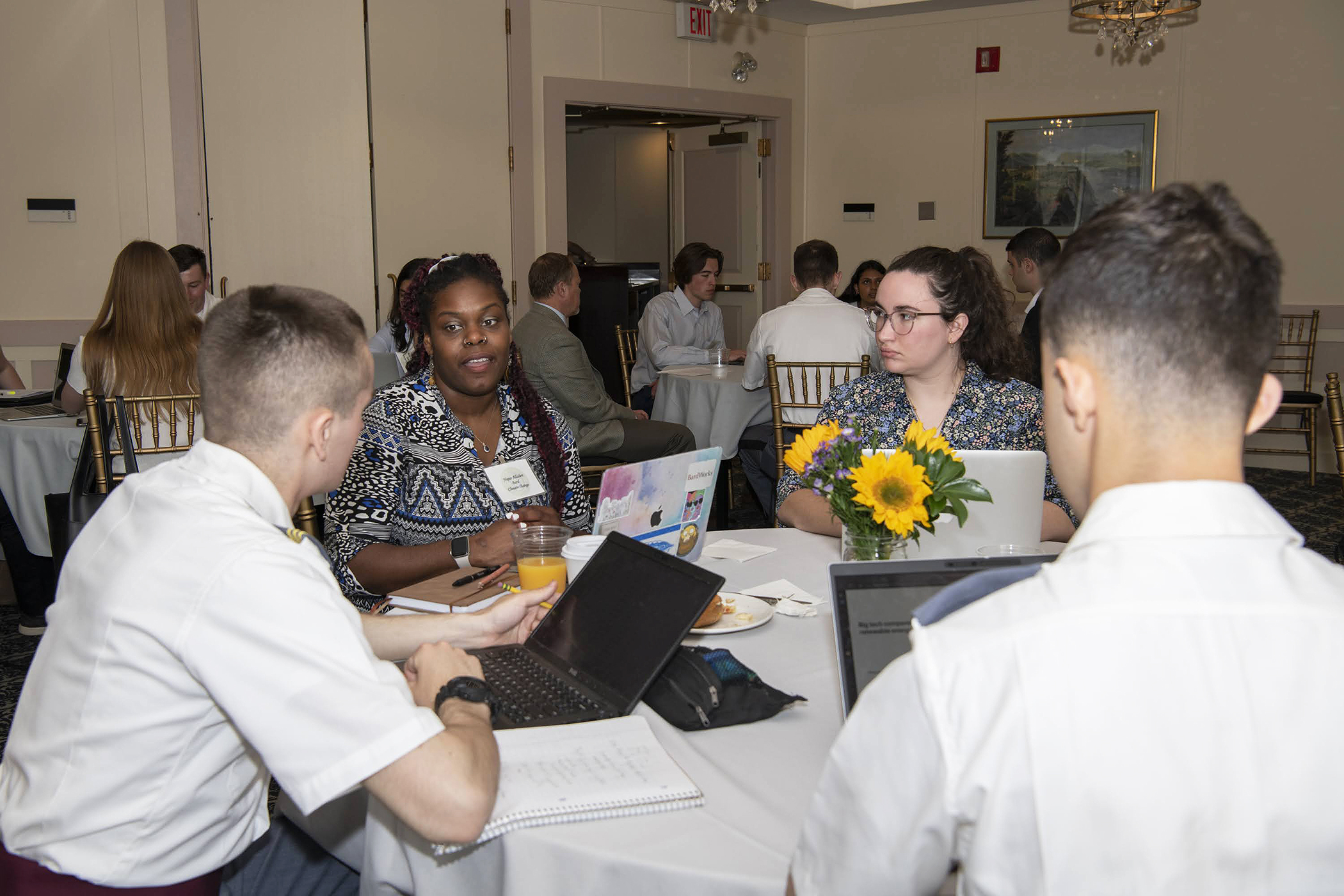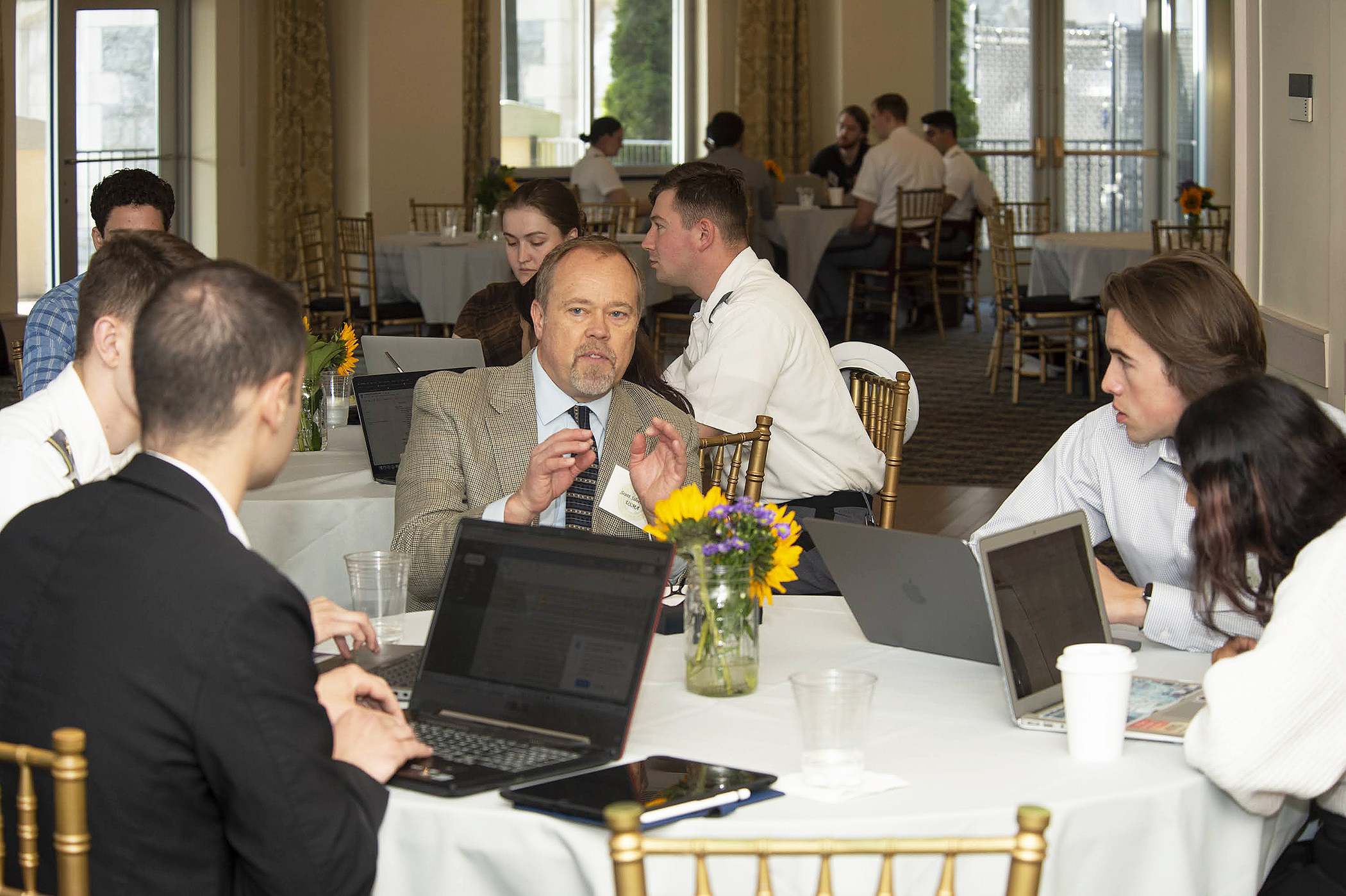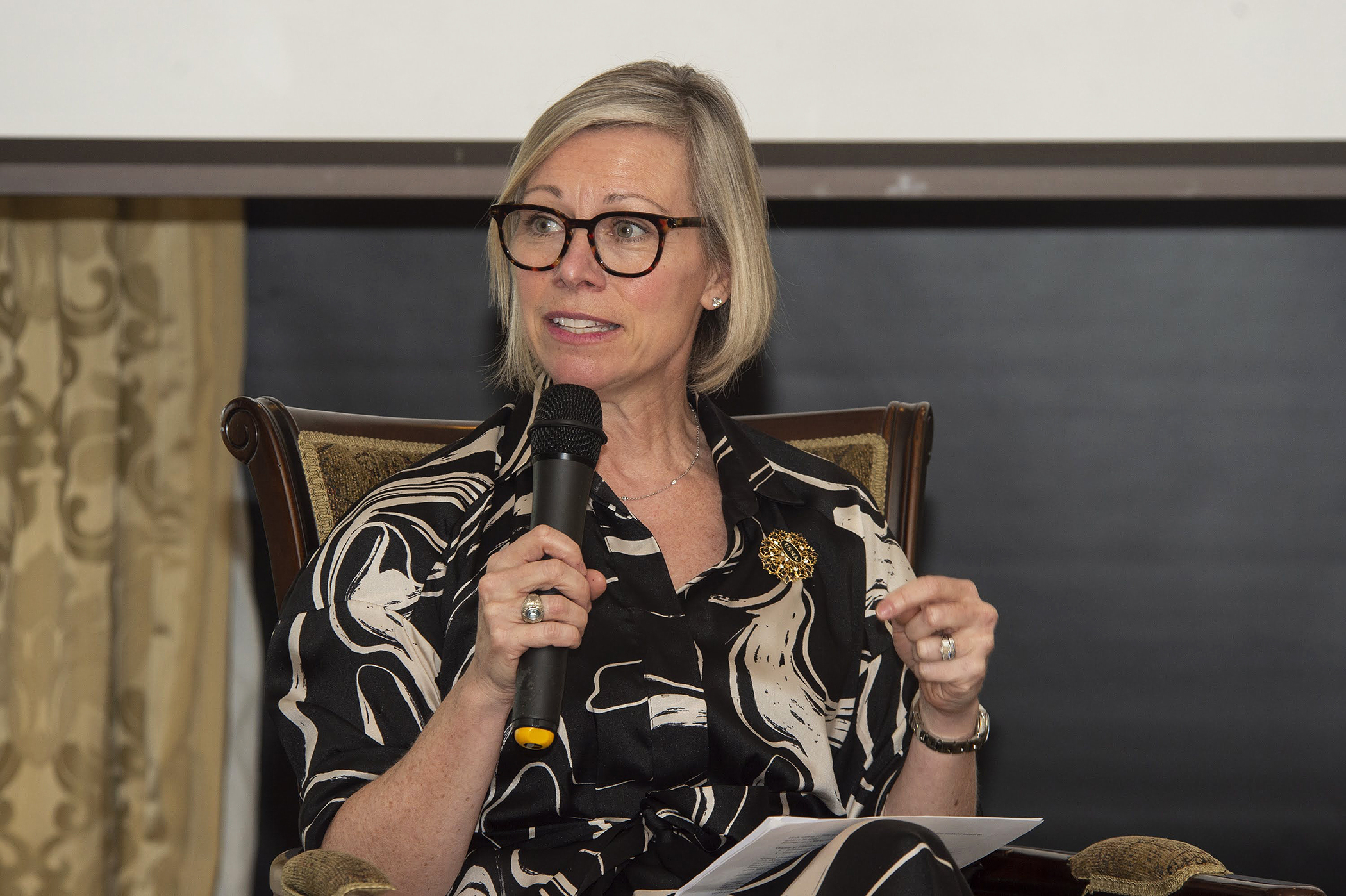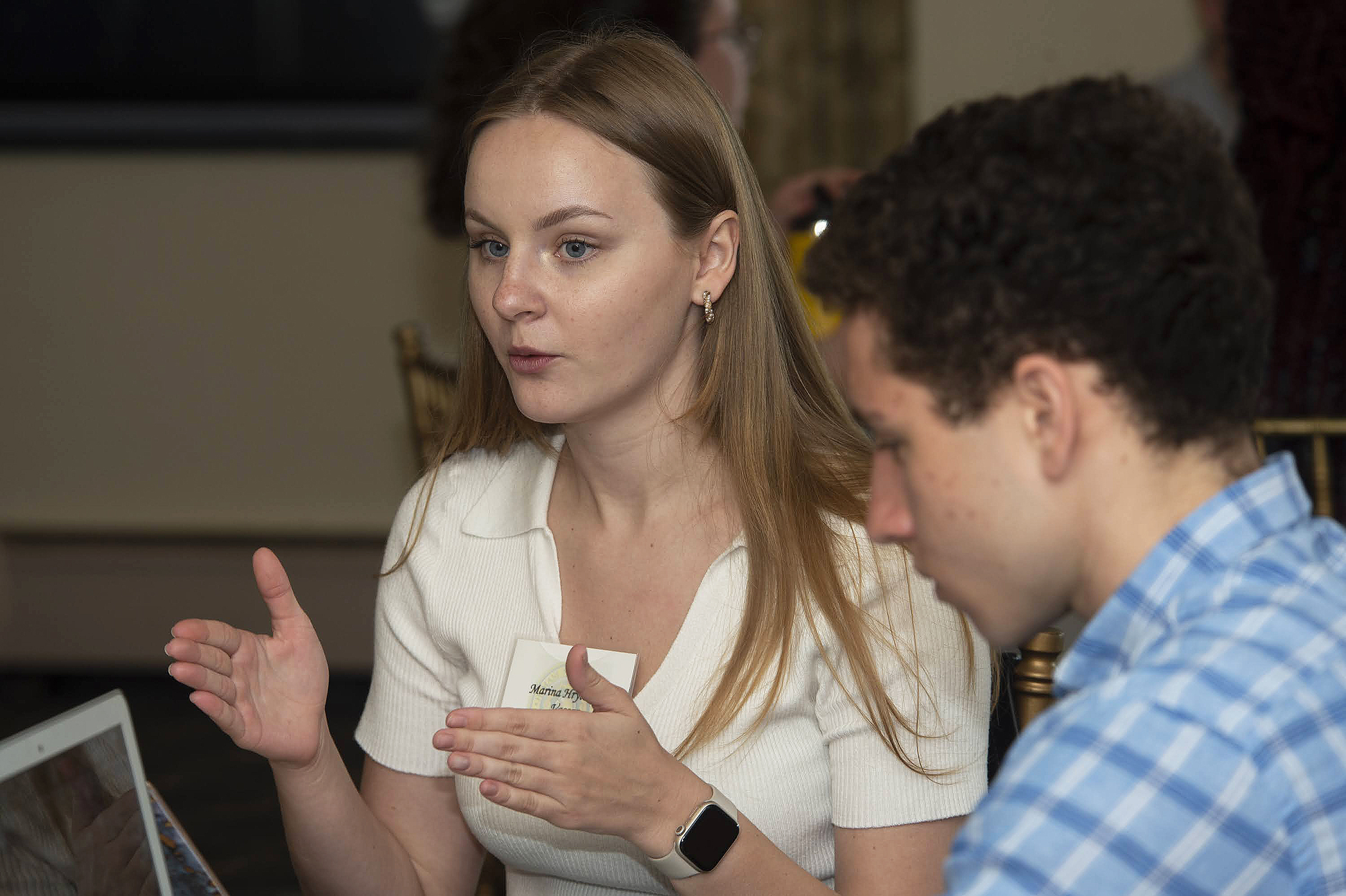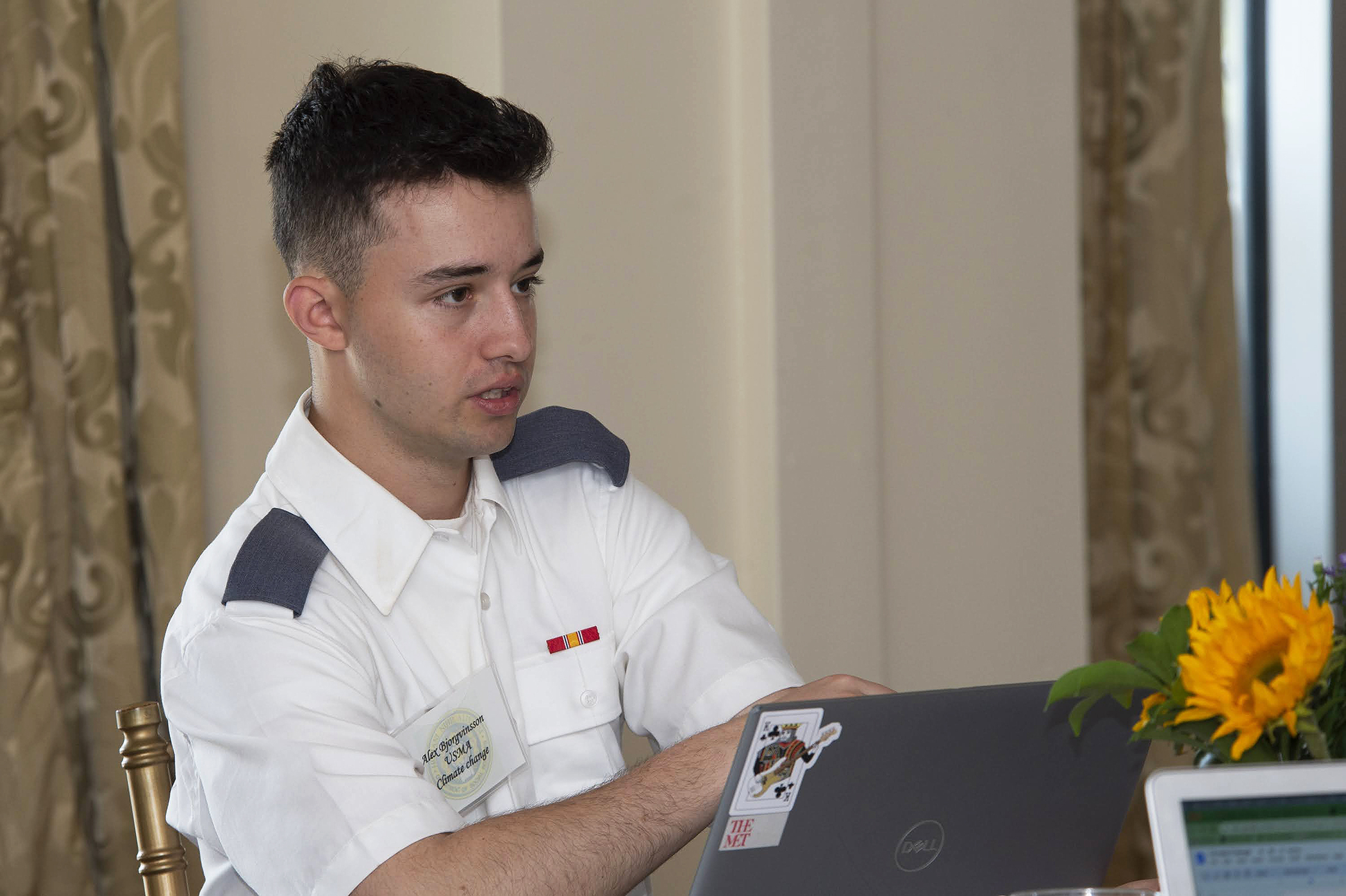The Hudson Room of the West Point Club resembled a think tank on April 14 as cadets and students from Vassar College, Bard College and Yale University gathered in small groups around tables engaged in deep conversation. The subject? Grand strategy.
This year marked the first Frontiers of Grand Strategy (FOGS) Workshop, hosted by the Rupert H. Johnson Grand Strategy Program and Vassar College. According to Dr. Charlotte Hulme, deputy director of the Grand Strategy Program and assistant professor of International Relations, the workshop is designed to offer students the opportunity to engage in discussions about grand strategy policies and their various approaches. It also helps develop civil-military relations by making connections between cadets and civilian students while forging new personal and professional relationships.
The Grand Strategy Program, under the Department of Social Sciences, prepares cadets for the big decisions they will encounter as officers, such as how state resources can be best allocated toward foreign policy goals, and offers opportunities to develop problem solving skills through a rigorous academic approach emphasizing critical, holistic and creative thinking.
Most cadets are introduced to the program through the Grand Strategy minor, which offers discussion-based seminar courses, policy-based trip sections and workshops. It also presents expert guest speakers, as well as a capstone experience, XH397, a for-credit field summer study course through which cadets travel to locations of strategic and historical significance. This summer, cadets will travel to the Philippines to study U.S. grand strategy in World War II. Any cadet can apply for the capstone, but Grand Strategy minors have priority.
After the first working group sessions, the cadets and students broke for lunch, then Hulme introduced the guest speaker, retired Army Col. Abigail Linnington, Ph.D., professor of Practice at The Fletcher School at Tufts University. Linnington is a 1995 USMA graduate and was an Assistant Professor of International Relations in the Department of Social Sciences in the early 2000s. Linnington and Dr. Malia Du Mont, vice president of Strategy at Bard, led a discussion on careers in grand strategy. Both shared their experiences in the military and civilian sectors.
Linnington explained that she came to USMA to get a foundation in international relations, particularly how strategy works from the perspective of states and the intention of governments on the human level.
A solid foundation in writing is important in preparing for a career in grand strategy, Linnington emphasized. She offered an example from her experience at the Pentagon, where she served as a senior advisor for Military Plans for the Secretary of Defense, among other positions. In the military, problems must be framed, assessed and articulated, and the commander’s intent must be simple, easily understood and not subject to misinterpretation, according to Linnington. It takes several drafts before a report can be honed down to the two-page maximum required.
Linnington went on to discuss her experience as director of the Chairman’s Action Group, where she travelled to 50 countries, some more than once, to engage with military leaders. She pointed out that the different types of interactions she encountered reflected different states’ approaches to strategy. For example, in China, leaders were unwilling to have the military commanders engage with their U.S. counterparts. In North Korea, on the other hand, leaders were willing to permit engagement between their military leaders and U.S. counterparts, including a missile exercise near the South Korean border. The engagement maximized pressure on North Korea and sent a message of stabilization in the region.
Returning to the subject of writing, Linnington explained how she was unexpectedly approached by then Army Chief of Staff Gen. Raymond Odierno to lead his speechwriting team.
In speechwriting, the key is listening, Linnington pointed out, as different speakers have different styles, so speechwriters must be aware of how they communicate. For example, Odierno would read word-for-word from the text, requiring close scrutiny of each word. Alternatively, Gen. Martin Dempsey, Odierno’s predecessor, would riff, so writers would have to note the key talking points and tailor the speech accordingly.
Linnington continued with her experience as an advisor on war plans for the Office of the Undersecretary of Defense for Policy, where she provided guidance on contingency plans during and after periods of conflict. She offered the historic examples of the deployment of U.S. troops to Germany following World War II and to South Korea following the Korean War. The key questions involved location, and how the Army could best allocate resources to protect national security. Linnington gave an example from the Global War on Terror, when U.S. troops were relocated from South Korea to the U.S. for training before deploying to Iraq.
Linnington concluded by offering advice she gives to her students at the Fletcher School, where she encourages them to enter public service, including local government, teaching, the Peace Corps and the military.
After a Q&A session and receiving a warm expression of gratitude from Hulme and the audience, Linnington sat down for a one-on-one discussion about her career and research. She explained that in researching contemporary military strategy and planning, she learned about all the factors at play in decision-making. She takes a U.S. centric approach to teaching about International Relations, and does not just focus on military strategy, but also the understanding of different bureaucratic behaviors and organization culture. She gave the example of the Pentagon, which from the outside appears to be a five-point system, but Linnington pointed out that it is actually three: the Secretary of Defense, the Chairman of the Joint Chiefs and the Chief of Staff, and once the differences are understood, changes can be made from the inside.
On the subject of returning to West Point, Linnington said the experience deepened her appreciation of the complex nature of the problems that cadets will need to solve during their military careers. Future officers will need to take fresh approaches to making decisions about grand strategy rather than starting from scratch. She pointed out that history is an important consideration, as it can lead to “why” questions, and she offered examples: Why is West Point located near a bend in the Hudson River? Why is Thayer Hall located where it is? Finding the answers to such questions can help cadets to be more creative problem solvers, as they learn how to take historic examples and use them as a jumping-off point to develop their own ideas about strategy.
Learn more about the Rupert H. Johnson Grand Strategy Program
Learn more about the Department of Social Sciences
